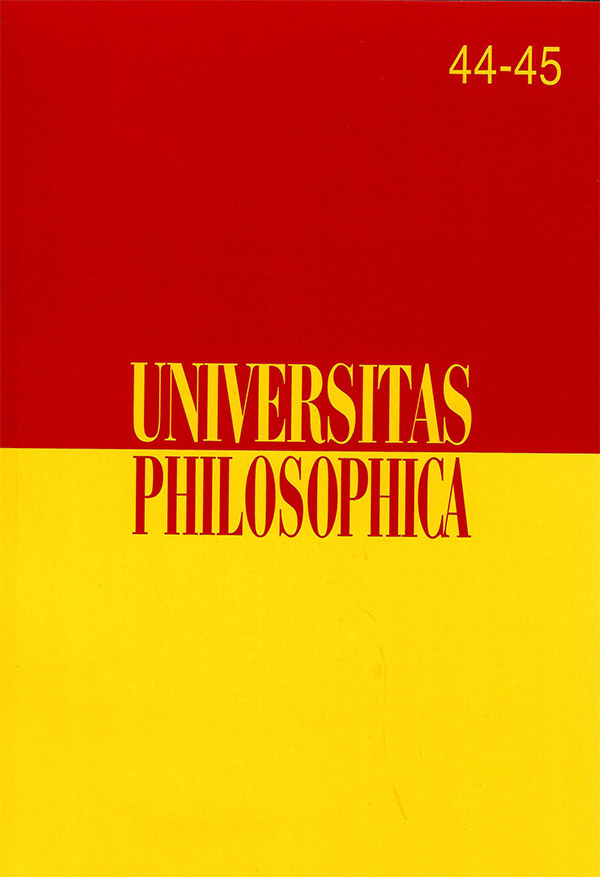Abstract
To assume Ethics as a First Philosophy is Lévinas' work proposal: There converge two sources of philosophic inspiration, Jewish thought and religion and Phenomenology, and the historical experience of persecution, violence and fail of recognition of the Other. So, Lévinas felt the demand of criticism of the totalitarian Greek ontology in order to give primacy to responsibility for the Other over the autonomy and freedom of the Self. After these considerations, the author retakes Lévinas' criticism of phenomenology and Heidegger's hermeneutic ontology with which the Western thought carnes to its term its limited option for knowledge and manifestation of being. In a third place, Rubio and Lévinas point towards an incarnate hermeneutics of our relations to the Other, towards a vindication of philosophic anthropology open to the Other as the main source of meaning. Finally, the author refers to the death according to Lévinas and, in relation to Rubio's passing away, underlies how to say 'good bye' to him, means to stand before God in all our nonthematizable relations to the Other and prior to everything.This journal is registered under a Creative Commons Attribution 4.0 International Public License. Thus, this work may be reproduced, distributed, and publicly shared in digital format, as long as the names of the authors and Pontificia Universidad Javeriana are acknowledged. Others are allowed to quote, adapt, transform, auto-archive, republish, and create based on this material, for any purpose (even commercial ones), provided the authorship is duly acknowledged, a link to the original work is provided, and it is specified if changes have been made. Pontificia Universidad Javeriana does not hold the rights of published works and the authors are solely responsible for the contents of their works; they keep the moral, intellectual, privacy, and publicity rights.
Approving the intervention of the work (review, copy-editing, translation, layout) and the following outreach, are granted through an use license and not through an assignment of rights. This means the journal and Pontificia Universidad Javeriana cannot be held responsible for any ethical malpractice by the authors. As a consequence of the protection granted by the use license, the journal is not required to publish recantations or modify information already published, unless the errata stems from the editorial management process. Publishing contents in this journal does not generate royalties for contributors.


